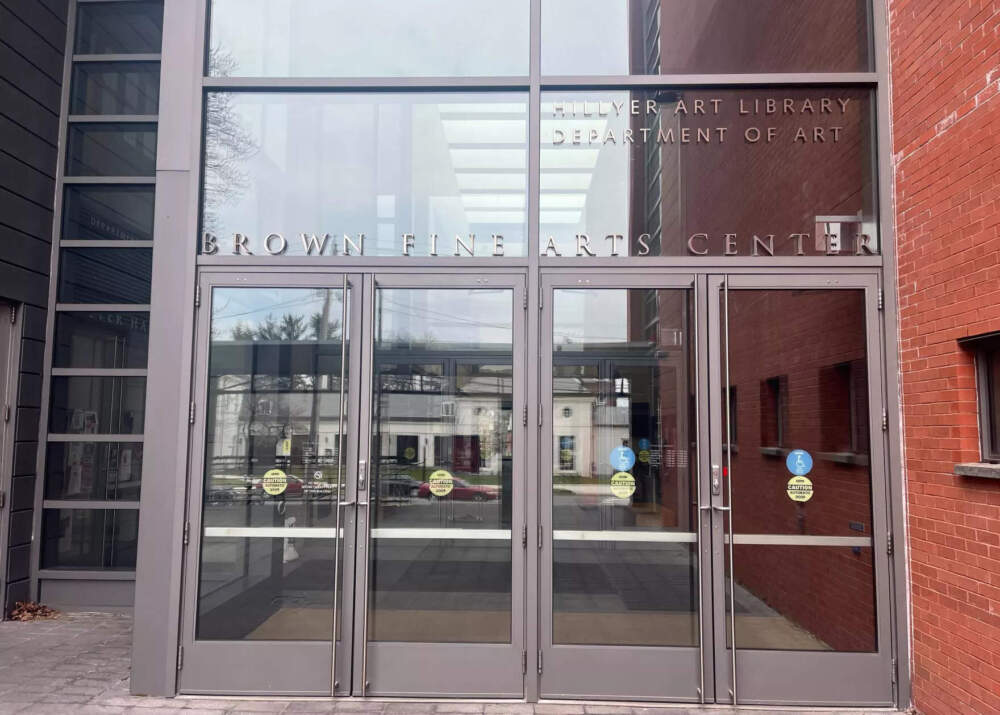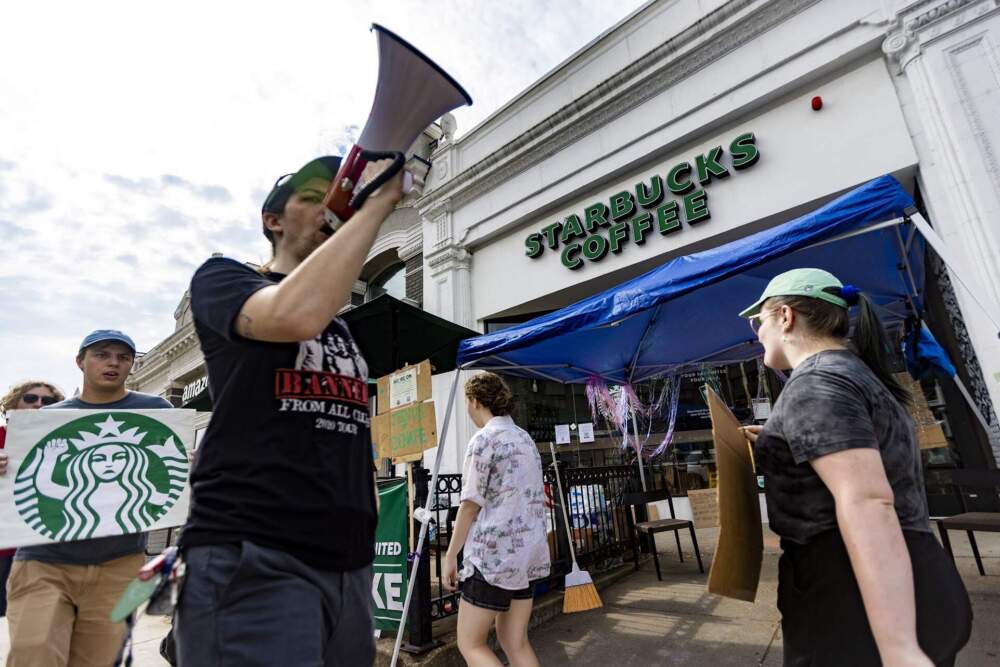Advertisement
Smith College library staff unionizes, part of larger union trend in Mass.

On Tuesday, more than 40 Smith College library staffers did something that only 6% of private-sector workers in the United States can claim: joined a union.
Locally, however, the workers who voted unanimously to join the Office & Professional Employees International Union are far from alone.
So far, 2024 is already shaping up to be the biggest year in recent memory for union organizing in western Massachusetts. Federal data from the National Labor Relations Board show that at least 477 workers have unionized this year in the region — more than in any previous year since at least 2019. And it’s higher-ed workers who have driven that trend.
“I think it’s a recognition that unions are for all workers,” said Micah Walter, a web-services librarian at Smith college. “No matter what industry you are in, no matter how large or small your workplace is, the voices of workers matter in determining the conditions of their labor.”
The percentage of unionized workers has been on the decline for decades in the United States, down from a peak in the 1950s when more than 30% of all workers in the country were part of a union, according to U.S. Bureau of Labor Statistics data. In 2023, union density, as it's known, hit a record low of 10% of total workers. In the public sector, some 32.5% of workers were unionized last year, compared to 6% of private-sector employees.
However, recently there have been high-profile examples of workers unionizing both in western Massachusetts and nationwide. In 2022 workers at the Trader Joe’s in Hadley voted to form their own independent union, becoming the first to organize themselves at the grocery chain nationwide. Everyone from Starbucks and Amazon workers to Dartmouth College basketball players have formed unions in recent years.

Jasmine Kerrissey, the director of the Labor Center at the University of Massachusetts Amherst, said that it is all pointing to a possible reversal of the downward trend of union membership in the country.
“There's definitely a boom happening in western Mass, and nationally, now around union organizing,” said Kerrissey, who has written a book about the subject: Union Booms and Busts: The Ongoing Struggle over the US Labor Movement.
In addition to the Smith College library staffers who voted to unionize Tuesday, 282 dealers and poker attendants at the MGM Springfield casino and 152 student-workers in Smith’s dining halls joined unions this year.
Not counted in those federal figures, however, are public-sector employees who unionized through the state’s Department of Labor Relations. That would include staff of Paulo Freire Social Justice Charter School in Chicopee, for example, who unionized with United Auto Workers Local 2322 in 2020. The federal figures also exclude western Massachusetts workers who unionized through a state-level “card check” process. Agricultural workers in Massachusetts can avoid a union election by just presenting evidence that a majority of workers have signed union cards. Around 20 cannabis cultivation workers at Green Thumb Industries in Holyoke, for example, did just that in 2021.
NEPM requested state-level data from a Department of Labor Relations spokesperson last week. On Tuesday afternoon, the agency provided data showing that 1,217 workers have unionized through those processes since 2019. However, the data did not include a breakdown of what years those workers organized.
Kerrissey said that workers are increasingly taking action in their workplaces. Sometimes that means organizing new unions, she said. In other cases, it means going out on strike like daycare workers at the anti-poverty organization Springfield Partners for Community Action did in 2022 or museum workers at MASS MoCA last month. The union representing Boston University graduate student workers has been on strike since March 25, as they say contract negotiations have moved slowly while costs rise.
For some workers, that organizing has taken place within already established unions. Some 204 workers at the company American Medical Response in Springfield, for example, voted late last month to switch unions and join the International Brotherhood of Teamsters.
Timothy Papoutsakis, a paramedic at the company, said part of the workers’ decision to leave their previous union was to be able to better advocate for improvements in the workplace.
“Obviously pay is a huge issue right now, benefits are a huge issue right now,” Papoutsakis said in phone interview last week. “Actually getting represented will help us fight for those things so maybe we can actually practice a little bit of self care going forward.”
As for new unions, the biggest challenge is winning a first contract, according to Kerrissey.
“Often those fights to get a first contract are quite difficult and there needs to be a lot of organizing and community support to get those first contacts,” Kerrissey said. She pointed to the fact that Trader Joe’s workers in Hadley still don’t have their first contract as one example.
For librarians at Smith, wages and a greater say in decision-making are just some of the big priorities for the new union. As for how their victory fits into the bigger picture, Walter, the librarian, said that it’s evidence of growing democracy in U.S. workplaces
“What we’re seeing is people realizing that a union is good for workers, and workers taking ownership of their workplace in a very healthy way.”
This story is a production of the New England News Collaborative. It was originally published by New England Public Media.
With additional reporting from WBUR's Max Larkin. Editor's Note: Boston University owns WBUR's broadcast license. WBUR is editorially independent.